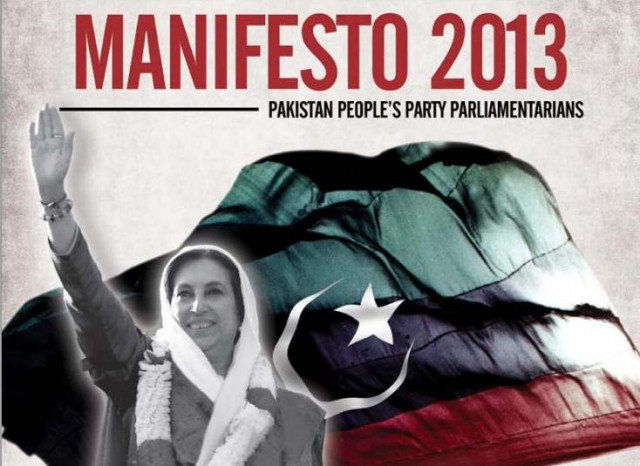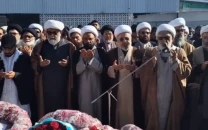PPP manifesto: After five years, PPP shifts focus on energy woes
Promises $36b will be spent on solving power woes, five million new jobs, land reforms if elected.

In the 2013 manifesto, the party has said it aims to increase energy by 12,000 megawatts through a mix of fuel and $36 billion investment through IPPs. PHOTO: ppp.org.pk
The Pakistan Peoples Party (PPP), the former ruling party, has launched its re-election bid around seven core values — ensuring basic needs, empowerment for all, inclusive and equitable growth, infrastructure for the future, social contract reforms, security and foreign policy.
During a seminar on the party’s manifesto organised by the Sustainable Development Policy Institute (SDPI) on Friday, former finance minister Senator Saleem Mandviwalla, and Senator Saeed Ghani expanded on the PPP’s promises, which include increasing education and health spending to around five per cent of Gross Domestic Product (GDP) each, and to create five million jobs in the next five years if voted back into power.
Mandviwalla said the PPP is most commonly blamed for the energy crisis. He said that when the party came in to power in 2008, it had resolved to deal with the energy sector using a three-pronged strategy — power plants in the short term, changing the fuel mix in the medium term and increasing Pakistan’s hydropower capacity in the long run.
He partly admitted his party’s failure in bringing immediate relief from load shedding but did not accept complete blame. “We were not able to implement the short term plan at all,” Mandviwalla said. “It was shot down from various quarters, which caused us to fail in this attempt.”
In the 2013 manifesto, the party has said it aims to increase energy by 12,000 megawatts through a mix of fuel and $36 billion investment through IPPs, a surprisingly high figure considering the entire federal budget for 2012-2013 was only $32.5 billion.
It also wants to decrease transmission losses below 15 per cent through “prudent policies and vigilant governance.”
Mandviwalla said the party will try to widen the tax net and improve the economy base to create an economic turnaround.
Unlike the previous seminars in the SDPI’s series of discussions on political party manifestos, there were no discussants at the PPP manifesto seminar, which meant the party’s representatives had a relatively easy time compared to the other parties that were scrutinised on the same platform.
But participants did not let the PPP representatives get off scot-free.
Responding to a question about the party’s claim of dividing land holdings among landless peasants, Ghani said state land will be divided. He elaborated that if the Supreme Court favourably decides the fate of a pending petition which argues that land reforms are un-Islamic, the land reforms act will come into place and private land could also be divided.
To ensure labour representation, Ghani said the party has decided to give four reserved seats in the National Assembly and two reserved seats in each provincial assembly to labour leaders.
Responding to a question about government subsidies, Mandviwalla said if the PPP is elected to office again, it will not completely do away with various subsidies but will make an effort to determine which subsidies are proving detrimental for the state’s coffer.
Speakers also raised questions about local governments, the current state of Pakistan’s economy and the environment policy of the PPP, especially its role in approving the timber movement policy for Diamer in Gilgit-Baltistan and the sale of two islands near Karachi, which hold ecological importance for their mangrove forests.
Published in The Express Tribune, April 20th, 2013.



















COMMENTS
Comments are moderated and generally will be posted if they are on-topic and not abusive.
For more information, please see our Comments FAQ